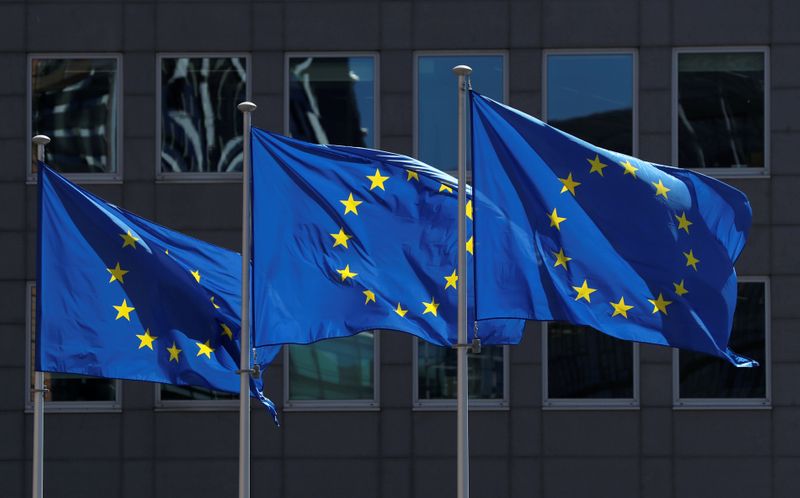This post was originally published on this site
https://i-invdn-com.akamaized.net/trkd-images/LYNXNPEG6L1FU_L.jpg
LONDON (Reuters) – The European Union will propose “quick fixes” to liberalise its capital markets rules in coming days, which it says are aimed at encouraging investment in companies hurt by the coronavirus crisis, EU documents showed on Wednesday.
The package will include looser rules on the funding of broker research into small and medium sized companies and the lifting of restrictions on trading energy derivatives.
Though the immediate impetus is the coronavirus crisis, many of the changes are expected to be permanent, with more changes expected as the EU aims to build a Capital Markets Union and compete with post-Brexit London as a finance hub.
The changes also mirror a string of quick fixes in banking rules to ensure the continued flow of credit to companies and households hit by lockdowns.
“EU member states have been severely affected by the economic crisis resulting from the COVID-19 pandemic,” the draft documents seen by Reuters say. “This calls for a quick reaction to support capital markets participants.”
One fix to the EU’s securities law known as MiFID II seeks to reverse the decline in broker research on small and medium sized companies used by investors such as asset managers.
The cost of such research must be “unbundled” or set out separately from other fees brokers charge investors, a requirement that has been blamed for the decline in coverage.
“The Commission therefore expects that an exemption from the unbundling rule for small and mid-cap companies should result in an increase of research coverage for those companies,” the document said, adding this would cover companies with a market capitalisation of under 1 billion euros.
The EU executive will also propose “unbundling” for fixed income instruments, the documents said. Disclosure and documentation requirements will also be eased in some cases.
Widespread curbs or position limits on trading commodities will be largely restricted to agricultural derivatives, to foster “nascent euro-denominated markets” in energy derivatives, a sector largely denominated in dollars at present.
There are also proposals to suspend “best execution” reports, which show investors if they are getting value for money from brokers, as these are not being read, the EU document said.

